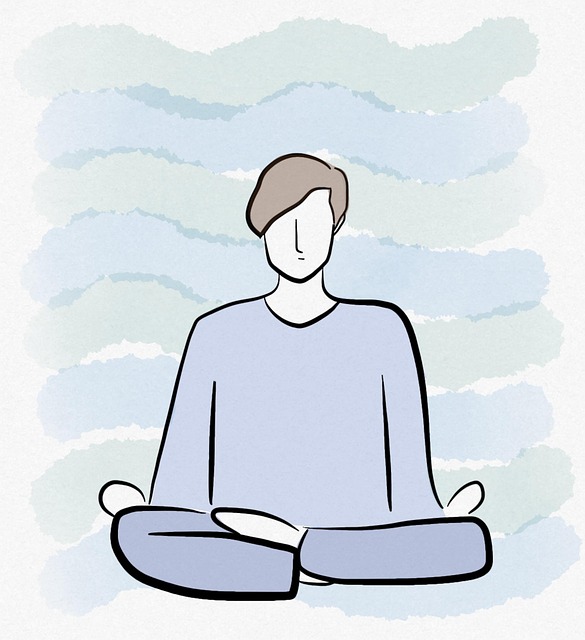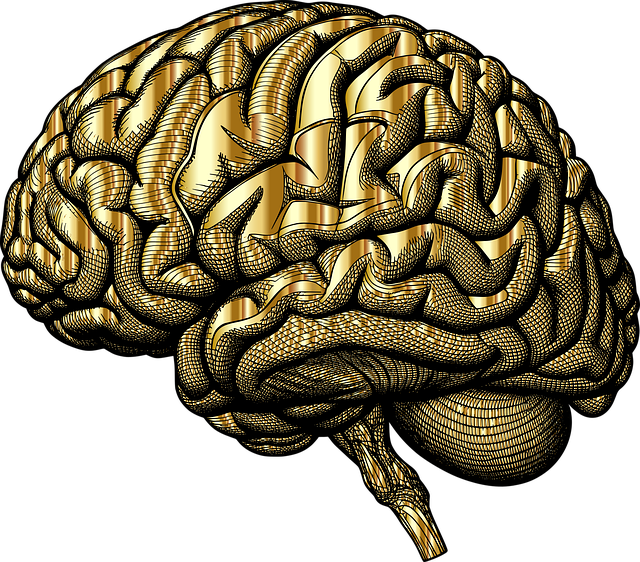Personalized self-care routines are crucial for mental wellness, especially for couples (Golden Couples) facing communication issues through therapy. Recognizing red flags like depression or anxiety and setting specific goals, such as improving communication skills, is vital. Regular therapy sessions, crisis intervention guidance, and culturally competent support help address Golden Couple communication difficulties. Self-care involves identifying needs, integrating healthy habits, fostering understanding through open dialogue, and practicing trauma support and depression prevention strategies. Measuring success through tracking emotional well-being, negative thoughts, and stress levels ensures adjustments to the self-care routine based on individual mental wellness needs.
Developing a robust mental wellness self-care routine is essential for overall well-being. This article explores a comprehensive guide, addressing key aspects from understanding your unique needs to crafting a personalized routine. We delve into the power of communication through the lens of Golden Couples in therapy, highlighting open dialogue as a potent tool for overcoming issues. Additionally, we navigate the balancing act of prioritizing self-care amidst life’s challenges and offer insights on measuring success in this ongoing journey.
- Understanding Your Mental Wellness Needs: Recognizing Red Flags and Setting Goals
- The Power of Communication: Golden Couples in Therapy – Overcoming Issues through Open Dialogue
- Crafting a Self-Care Routine: Incorporating Healthy Habits for Mind, Body, and Soul
- Balancing Act: Prioritizing Self-Care While Navigating Life's Challenges
- Measuring Success: Tracking Progress and Adjusting Your Mental Wellness Routine
Understanding Your Mental Wellness Needs: Recognizing Red Flags and Setting Goals

Understanding your mental wellness needs is a crucial step in developing a self-care routine that works for you. It involves recognizing red flags such as persistent feelings of sadness, anxiety, or anger; changes in appetite or sleep patterns; and any thoughts of self-harm. These signs may indicate underlying issues like depression, anxiety disorders, or even more severe conditions that require professional help.
Setting goals is an integral part of this process. Begin by identifying areas where you want to see improvements, whether it’s managing stress levels, boosting confidence, or improving communication skills. For instance, if Golden Couple communication issues have been a challenge, setting a goal to incorporate regular therapy sessions could be beneficial. Remember, seeking crisis intervention guidance from your healthcare provider or exploring cultural competency training for enhanced support is also an option worth considering based on your unique situation.
The Power of Communication: Golden Couples in Therapy – Overcoming Issues through Open Dialogue

In the realm of mental wellness self-care routine development, communication plays a pivotal role, often highlighting the power of open dialogue as a potent tool in therapy. Golden Couples in therapy—those who foster an environment of honest and respectful exchange—find themselves equipped to overcome communication issues that can otherwise deepen existing problems or prevent new ones from being addressed. Open conversations allow them to explore underlying emotional dynamics, fostering understanding and empathy between partners.
This dynamic duo’s commitment to positive thinking is not just a by-product; it emerges naturally from their willingness to engage in constructive discussions. By delving into their feelings and perspectives, they cultivate a self-care routine development that goes beyond surface-level solutions. This process strengthens their bond, enhances mental wellness, and ultimately contributes to better mental health for both individuals in the relationship.
Crafting a Self-Care Routine: Incorporating Healthy Habits for Mind, Body, and Soul

Crafting a self-care routine is an act of self-love and a powerful tool for mental wellness. It involves intentional practices that nurture your mind, body, and soul, addressing holistic health. This journey often starts with recognizing personal needs and preferences. Incorporating healthy habits such as regular exercise, mindful meditation, or engaging in creative pursuits can significantly enhance one’s overall well-being. For instance, a golden couple—communication and therapy—can be pivotal in fostering self-care. Open dialogue helps resolve communication issues within relationships, allowing individuals to express their needs and boundaries, which is essential for mental health.
Additionally, trauma support services and depression prevention strategies can be integrated into your routine. Building confidence through self-care practices empowers individuals to face challenges head-on. By dedicating time for rest, reflection, and pleasure, you can create a balanced lifestyle that promotes resilience and emotional equilibrium. These practices not only help in managing existing mental health concerns but also serve as preventive measures, fostering a sense of stability and harmony within oneself.
Balancing Act: Prioritizing Self-Care While Navigating Life's Challenges

In the midst of life’s relentless challenges, prioritizing self-care can feel like a delicate balancing act. Juggling work, relationships, and personal aspirations often leaves little room for mental wellness practices. However, integrating self-care into your routine is not a luxury but a necessity, especially when dealing with issues like communication difficulties in couples therapy or managing stress through golden couple communication strategies.
Mental wellness coaching programs emphasize the importance of recognizing and addressing our needs, even amidst chaos. Practices such as mindfulness meditation and compassion cultivation can serve as powerful tools to navigate life’s ups and downs. By dedicating time for these self-care activities, individuals can foster resilience, improve relationships, and ultimately enhance their overall mental wellness, ensuring they are equipped to face whatever challenges come their way.
Measuring Success: Tracking Progress and Adjusting Your Mental Wellness Routine

Measuring success is an integral part of establishing and maintaining a mental wellness self-care routine. It allows you to track your progress, identify what’s working, and make informed adjustments. Regularly assess how you feel emotionally, mentally, and physically—this can be done through journaling, mood tracking apps, or simply paying attention to your body’s signals. Reflect on the frequency and intensity of negative thoughts, anxiety, or stress levels before and after incorporating certain self-care activities.
Over time, you’ll start to notice patterns; some practices might offer immediate relief, while others may take longer to become effective. This process involves trial and error, but it’s a valuable way to uncover your unique mental wellness needs. If you’re dealing with trauma or communication issues in relationships (often addressed through therapy), tracking your progress can help you understand how these challenges impact your self-care journey. Adjustments are key; feel free to swap activities, change frequencies, or adapt techniques based on your insights, ensuring your routine remains a powerful tool for boosting confidence and supporting overall mental health.
Developing a mental wellness self-care routine is a transformative journey, one that requires understanding your unique needs and fostering healthy communication. As previously mentioned, Golden Couples in therapy exemplify the power of open dialogue in overcoming issues. By recognizing red flags, setting achievable goals, and prioritizing self-care, individuals can navigate life’s challenges with resilience. Incorporating mental, physical, and emotional well-being practices into daily routines enables folks to thrive. In light of the above, remember that balancing self-care with life demands is an ongoing process; tracking progress and adjusting your routine ensures you’re on a path to enhanced mental wellness.













